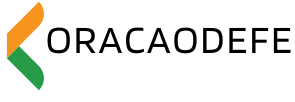Financial literacy is the set of skills and information you need to make smart choices about your money. It means knowing how to set short-term and long-term financial goals, make a budget, save money, trade, and handle debt. Many people think of experts or businesspeople when they think of financial literacy, but everyone needs it, no matter their age, income, or background.
You spend money on almost everything in your daily life. Your quality of life is directly affected by how well you can handle your money, whether you’re shopping for food, paying rent, asking for a loan, or making plans for retirement. When you know about money, you can make decisions that are better for your situation instead of ones that hurt it.
How knowing about money affects the choices we make every day
Every day, you have to make choices about money. Should you wait until it goes on sale before buying that new phone? Should you hire a car or buy one? For that unexpected cost, should you use a credit card or take money out of your savings? These little choices you make every day may not seem like much, but they can add up over time.
Learning about money helps you decide what to do by looking at the long-term effects of each choice. It teaches you to put needs ahead of wants, know how much credit really costs, and spot chances to save money. If you know how money works, you won’t fall into common mistakes like spending too much, taking on too much debt, or forgetting to plan for your future needs.
How making a budget can help you learn about money
Knowing how to make a budget is one of the most important parts of being financially literate. You can think of a budget as a plan for your money. So you know where your money is going every month, it helps you keep track of your income and spending.
You can live within your means, save for emergencies, and put money aside for investments or savings when you make and stick to a budget. Instead of feeling like your money rules you, making a budget gives you power over your money.
How to Understand Credit and Debt
Credit cards, loans, and other forms of financing are popular in today’s world. But if they are used incorrectly, they can cause a lot of debt and stress about money. Knowing about money teaches you how loans work, what interest rates mean, and how to figure out how much it really costs to borrow money.
You can make better choices about when and how to borrow money if you know about credit. You will learn how to check your credit score, look for mistakes on your credit record, and use credit wisely so that you can build a good financial image. In the long run, you can save a lot of money by staying out of debt with high interest rates and paying your bills on time.
Why it’s important to save money and have emergency funds
Learning about money stresses the importance of saving, not only for big plans like buying a house or retirement, but also for small costs that come up out of the blue. It’s possible to get a hospital bill, have your car fixed, or lose your job at any time. If you don’t have any funds, you might have to borrow money or use credit, which can put you in even more financial problems.
Knowing about money means knowing how important it is to have an emergency fund and being able to stick to the plan to build it up over time. Even putting away a small amount every month can add up to a safety net that keeps you from going bankrupt.
Making Smart Choices About Investments
It’s important to save money, but spending is what makes it grow over time. Learning about money and financial basics like stocks, bonds, mutual funds, and savings accounts helps you make smart decisions that fit your goals and risk tolerance.
Knowing about time spans, variety, and compound interest gives you the confidence to make smart investments and stay away from scams and dangerous “get rich quick” plans. People who know a lot about money are more likely to start saving early, which can help them get much richer over time.
Making plans for the future
Knowing about money isn’t just about dealing with it now; it’s also about getting ready for the future. This includes making plans for big events in your life like college, buying a house, getting married, having kids, or retiring. People who are financially savvy plan ahead and come up with ways to reach their goals without taking on too much debt or losing their security.
Insurance, wills, and estate planning are also things they know how to use to protect their families and property. By making plans ahead of time, they feel less stressed about money and more at ease.
Knowing about money can help you avoid scams and fraud
There are more and more financial scams and frauds happening, especially online. People who don’t know much about money are often targeted and scammed, from phishing emails to fake business offers. People who know about money can spot red flags and avoid deals that seem too good to be true.
You can protect your money from bad schemes by learning about your rights, how to spot scams, and how to keep your personal financial information safe.
Teaching kids about money from a young age
It’s better for people to learn about money early on. When kids and teens are taught basic money skills, they tend to form better habits that last into adulthood. This can mean knowing how to properly make money, spend it, save it, and give it away.
Communities, schools, and parents can all help kids learn about money. You can use it for a long time and it will help you become more independent and strong. Early education sets the stage for good money habits, like showing kids how to budget their pay or helping young people understand student loans.
How knowing about money makes you feel more confident
The security it gives you is one of the most underrated perks of learning about money. You feel more in charge of your life when you know how money works and how to handle it. You don’t make choices out of fear, but from strength. You can make plans for what you want, get back on track after failures, and have more freedom and options.
Having trust in your finances is good for your mental health, lowers stress, and adds to your general health. No matter how much money you make, it gives you the power to live on purpose and make the most of it.
Conclusion: Learn about money and make it a lifelong goal
Learning about money isn’t a one-time thing; it’s a process that lasts a lifetime. Your knowledge of money should grow along with your income, responsibilities, and goals as they change. Knowing about money gives you the tools to achieve, whether you’re handling your first paycheck or making plans for retirement.
Knowing about money is important in everyday life because it can mean the difference between living and growing. It helps you stay out of debt, get rich, and make decisions that are in line with your morals and goals. Begin learning today, make small changes to develop better habits, and make a promise to keep learning over time. Your self in the future will be grateful.




